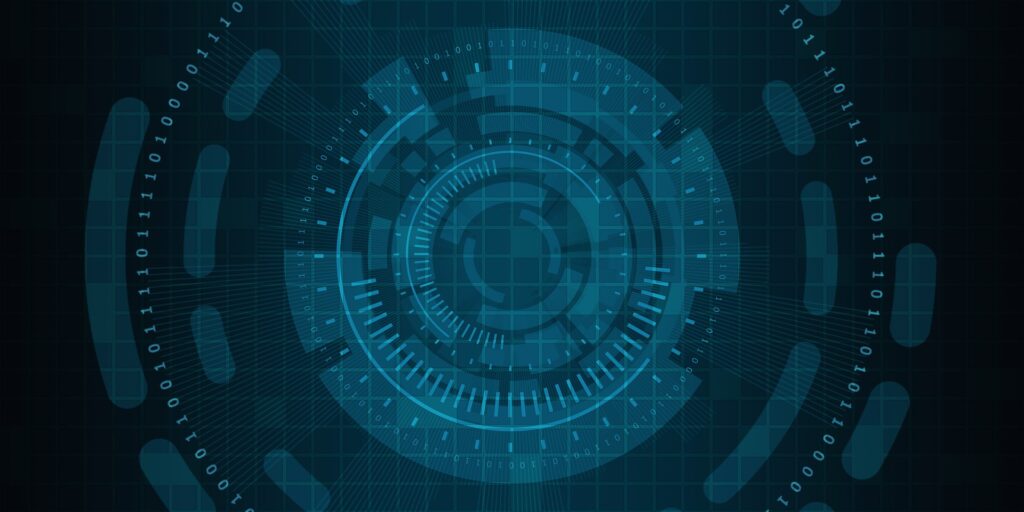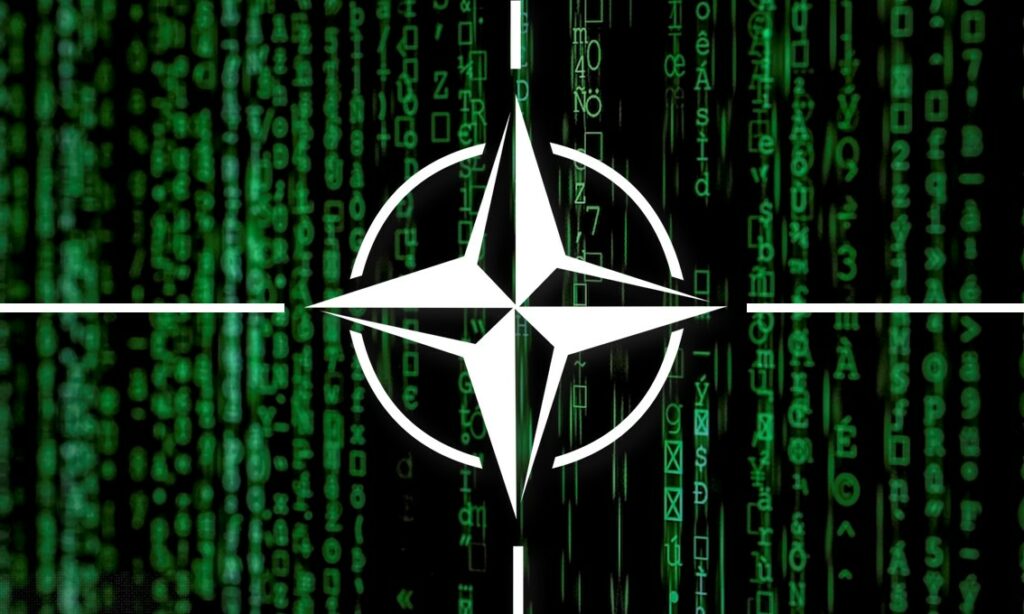
La cyber warfare è una forma di conflitto che si svolge a livello informatico e digitale. Questa forma di guerra è diventata sempre più diffusa negli ultimi anni, grazie alla crescente dipendenza delle società moderne dalla tecnologia e dall’informazione.
In questo articolo, esploreremo la natura della cyber warfare, i suoi effetti sulle società moderne e come vengono utilizzati i cyber attacchi come strumento di guerra, la necessità da parte degli stati di avere comparti focalizzati sulla cyber warfare e i pericoli della guerra informatica negli equilibri politici e finanziari del mondo di oggi.
Cos’è la cyber warfare?
La cyber warfare è l’uso di tecnologie informatiche e digitali per condurre operazioni militari o di intelligence. Questo tipo di guerra si basa sull’uso di tecnologie avanzate per infiltrarsi nei sistemi informatici e causare danni ai nemici. Gli attacchi possono essere lanciati attraverso la rete Internet, reti private o altre tecnologie di comunicazione.
In un conflitto (come abbiamo visto nella guerra Ucraina – Russia), la cyber warfare può essere utilizzata per una varietà di scopi, tra cui lo spionaggio, il sabotaggio e la guerra psicologica. Gli attacchi possono essere lanciati attraverso la rete Internet, reti private o altre tecnologie di comunicazione.
Il crescente uso della tecnologia digitale nelle società moderne ha reso la cyber warfare sempre più diffusa e pericolosa. In molti casi, i cyber attacchi possono causare danni significativi alle infrastrutture essenziali come le reti di energia, di trasporto e di comunicazione.
Gli effetti della cyber war sulla società moderna sono molteplici. Ad esempio, un cyber attacco può causare il blocco di servizi essenziali come l’elettricità o la comunicazione, il furto di informazioni sensibili o la diffusione di notizie false o manipolate.
In conclusione, la cyber warfare è una forma di conflitto sempre più diffusa e pericolosa. I cyber attacchi possono causare danni significativi alle società moderne e sono spesso difficili da individuare e contrastare. Per combattere la cyber warfare, sono necessarie misure di sicurezza avanzate e un alto livello di vigilanza e di consapevolezza.

Oggi, la guerra informatica è diventata un elemento essenziale della strategia militare per molti paesi. Ciò è dovuto al fatto che la tecnologia digitale è diventata, come precedentemente detto, una parte integrante della società moderna. Inoltre, le infrastrutture nazionali ogni giorno diventano sempre più vulnerabili agli attacchi informatici per l’aumento dell’esposizione al rischio informatico.
Ecco alcune ragioni per cui gli stati devono avere comparti focalizzati sulla guerra informatica:
Inoltre, l’uso di tecnologie informatiche avanzate nella guerra moderna ha aumentato la necessità di avere personale specializzato nella cyber warfare. I militari devono essere addestrati per utilizzare queste tecnologie in modo efficace e per difendere le infrastrutture critiche dagli attacchi informatici.
In conclusione, la guerra informatica è diventata una parte integrante della strategia militare moderna. Gli stati devono avere comparti focalizzati sulla guerra informatica per proteggere le infrastrutture critiche e prevenire attacchi informatici da parte di gruppi terroristici e di altri paesi.

La guerra informatica può portare a una guerra reale quando gli attacchi informatici causano danni significativi alle infrastrutture di uno stato e quindi alla sicurezza nazionale. Ad esempio, se un attacco informatico causa la perdita di vite umane o la distruzione di infrastrutture essenziali come impianti nucleari o di difesa, potrebbe innescare una risposta militare.
Inoltre, l’uso della guerra informatica può anche aumentare le tensioni tra i paesi e portare a una escalation del conflitto che alla fine potrebbe sfociare in una guerra reale. Pertanto, è importante che i governi e le organizzazioni mantengano un alto livello di vigilanza e di consapevolezza riguardo alle minacce della guerra informatica e agiscano tempestivamente per prevenire conflitti più ampi.
L’articolo 5 della Carta delle Nazioni Unite stabilisce il principio della difesa collettiva degli Stati membri dell’ONU. In particolare, l’articolo 5 afferma che “gli Stati membri si impegnano a fornire supporto alle Nazioni Unite nell’esercizio del loro diritto alla difesa collettiva contro un attacco armato”.
In relazione agli attacchi informatici, l’articolo 5 potrebbe essere interpretato come un impegno degli Stati membri a collaborare nella difesa collettiva contro attacchi informatici mirati alle infrastrutture critiche e alla sicurezza nazionale dei singoli paesi membri.
Tuttavia, la questione della definizione di un attacco informatico come un attacco armato rimane ancora in discussione. Alcuni esperti sostengono che gli attacchi informatici possono essere considerati atti di guerra se causano danni significativi alle infrastrutture essenziali o se violano la sovranità nazionale. Altri sostengono che gli attacchi informatici non sono necessariamente atti di guerra, ma possono essere considerati come un’attività di spionaggio o sabotaggio.
In ogni caso, l’articolo 5 potrebbe essere invocato in caso di un attacco informatico che rappresenta una minaccia per la sicurezza nazionale degli Stati membri dell’ONU. Gli Stati membri potrebbero collaborare nella difesa collettiva contro questi attacchi, adottando misure di sicurezza avanzate e coordinando le risposte alle minacce alla sicurezza informatica.

Per combattere la cyber warfare, sono necessarie misure di sicurezza avanzate come l’uso di sistemi di autenticazione a due fattori, l’adozione di protocolli di sicurezza avanzati e la formazione di personale specializzato. Inoltre, è importante che i governi e le organizzazioni mantengano un alto livello di vigilanza e di consapevolezza riguardo alle minacce della cyber warfare.
Le tecnologie utilizzate nella cyber warfare sono sempre più sofisticate e difficili da individuare e contrastare. I cyber attaccanti utilizzano spesso tecniche di criptazione e di mimetizzazione per nascondere la loro attività. Per questa ragione, la cyber warfare è diventata un’arma di scelta per molti governi e organizzazioni militari.
Gli stati possono adottare una serie di misure per proteggersi dalla guerra informatica. Ecco alcune possibili azioni:
In generale, gli stati dovrebbero prendere sul serio le minacce informatiche e adottare misure proattive per proteggere i propri sistemi e le proprie reti, al fine di evitare attacchi dannosi che potrebbero compromettere la sicurezza nazionale.

Nella guerra cibernetica, l’attribuzione degli attacchi informatici ad uno stato o ad un gruppo specifico è spesso molto complessa. Ci sono diversi motivi per cui questo è così.
In primo luogo, gli attacchi informatici possono essere eseguiti attraverso una vasta gamma di strumenti e tecniche, come l’hacking, il phishing, il malware, i ransomware e altri tipi di attacchi. Questi strumenti, oggi, possono essere facilmente acquistati o scaricati da internet e utilizzati da individui o gruppi non affiliati ad uno stato.
In secondo luogo, gli attacchi informatici possono essere mascherati o camuffati per nascondere la loro origine. I cyber criminali e gli hacker esperti possono utilizzare tecniche sofisticate per mascherare l’origine dell’attacco.
In terzo luogo, ci sono anche gli attacchi informatici eseguiti da “stati-nazione”, ovvero da governi o organizzazioni statali. Tuttavia, anche in questo caso, l’attribuzione dell’attacco può essere difficile. Gli stati possono utilizzare strutture di attacco remote, utilizzare server proxy o utilizzare terze parti per eseguire gli attacchi, al fine di nascondere la loro partecipazione.
Inoltre, gli stati possono anche utilizzare tecniche di “falsificazione” (false flag) per mascherare l’origine dell’attacco, ad esempio utilizzando gli strumenti di un altro stato per eseguire l’attacco e farlo apparire come se provenisse da un’altra fonte.
In sintesi, l’attribuzione degli attacchi informatici è molto complessa a causa della vasta gamma di strumenti e tecniche disponibili, della possibilità di camuffare la fonte dell’attacco e delle tecniche sofisticate utilizzate dagli stati per nascondere la loro partecipazione. Tuttavia, gli esperti di sicurezza informatica stanno sviluppando continuamente nuove tecniche e tecnologie per migliorare l’attribuzione degli attacchi e ridurre il rischio di futuri attacchi informatici.

la guerra informatica può influenzare significativamente l’economia e la geopolitica odierna in diversi modi.
Per quanto riguarda l’economia, gli attacchi informatici possono causare danni economici notevoli alle aziende e alle organizzazioni. Ad esempio, un attacco ransomware può criptare i dati aziendali e richiedere un pagamento per sbloccare l’accesso. Inoltre, gli attacchi informatici possono compromettere la proprietà intellettuale, i segreti commerciali e le informazioni dei clienti, causando danni finanziari significativi oltre a fornire un vantaggio agli stati avversari. Inoltre, la diffusione di notizie false o di informazioni distorte può influenzare il mercato e causare fluttuazioni dei prezzi delle azioni.
Per quanto riguarda la geopolitica, gli stati possono utilizzare gli attacchi informatici come una forma di aggressione verso altre nazioni, utilizzando il cyber spazio per eseguire operazioni militari o per influenzare le elezioni. Gli stati possono anche utilizzare la guerra informatica per spionaggio industriale, acquisendo informazioni sulle attività commerciali di altri paesi o organizzazioni.
Gli attacchi informatici possono essere anche utilizzati, come abbiamo visto prima, per danneggiare le infrastrutture critiche, come le reti energetiche, i sistemi finanziari e le reti di comunicazione, compromettendo la capacità di un paese di difendersi da attacchi esterni. Inoltre, la diffusione di notizie false o di informazioni distorte può influenzare l’opinione pubblica e minare la fiducia nelle istituzioni.
In sintesi, la guerra informatica rappresenta una minaccia sempre crescente per l’economia e la geopolitica odierna, e richiede la collaborazione e la cooperazione internazionale per prevenire e mitigare gli attacchi informatici.
Ti è piaciuto questo articolo? Ne stiamo discutendo nella nostra Community su LinkedIn, Facebook e Instagram. Seguici anche su Google News, per ricevere aggiornamenti quotidiani sulla sicurezza informatica o Scrivici se desideri segnalarci notizie, approfondimenti o contributi da pubblicare.

 Innovazione
InnovazioneL’evoluzione dell’Intelligenza Artificiale ha superato una nuova, inquietante frontiera. Se fino a ieri parlavamo di algoritmi confinati dietro uno schermo, oggi ci troviamo di fronte al concetto di “Meatspace Layer”: un’infrastruttura dove le macchine non…
 Cybercrime
CybercrimeNegli ultimi anni, la sicurezza delle reti ha affrontato minacce sempre più sofisticate, capaci di aggirare le difese tradizionali e di penetrare negli strati più profondi delle infrastrutture. Un’analisi recente ha portato alla luce uno…
 Vulnerabilità
VulnerabilitàNegli ultimi tempi, la piattaforma di automazione n8n sta affrontando una serie crescente di bug di sicurezza. n8n è una piattaforma di automazione che trasforma task complessi in operazioni semplici e veloci. Con pochi click…
 Innovazione
InnovazioneArticolo scritto con la collaborazione di Giovanni Pollola. Per anni, “IA a bordo dei satelliti” serviva soprattutto a “ripulire” i dati: meno rumore nelle immagini e nei dati acquisiti attraverso i vari payload multisensoriali, meno…
 Cyber Italia
Cyber ItaliaNegli ultimi giorni è stato segnalato un preoccupante aumento di truffe diffuse tramite WhatsApp dal CERT-AGID. I messaggi arrivano apparentemente da contatti conosciuti e richiedono urgentemente denaro, spesso per emergenze come spese mediche improvvise. La…